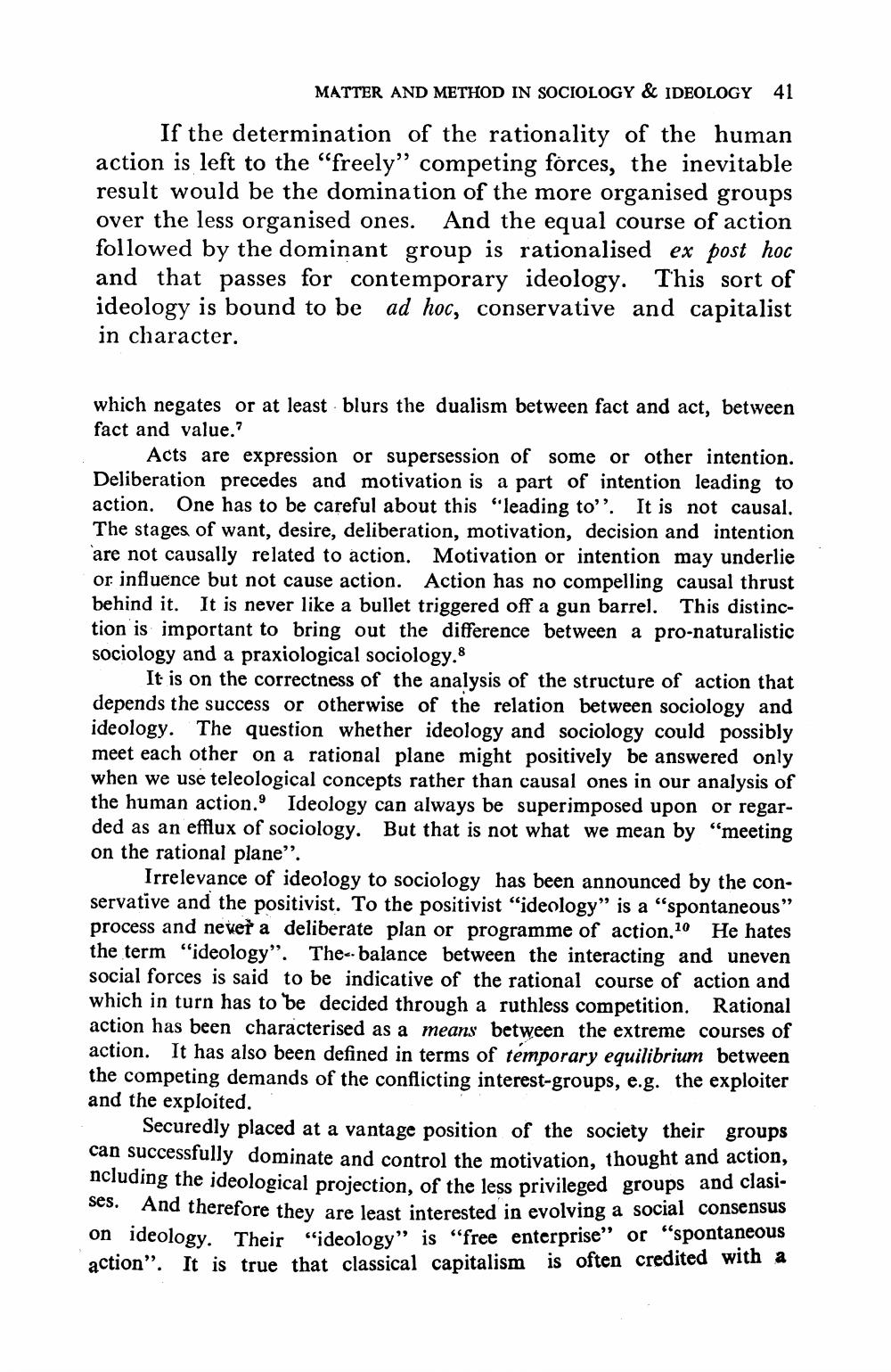Book Title: Matter And Method In Sociology And Ideology Author(s): D P Chattopadhyaya Publisher: D P Chattopadhyaya View full book textPage 3
________________ MATTER AND METHOD IN SOCIOLOGY & IDEOLOGY 41 If the determination of the rationality of the human action is left to the "freely" competing forces, the inevitable result would be the domination of the more organised groups over the less organised ones. And the equal course of action followed by the dominant group is rationalised ex post hoc and that passes for contemporary ideology. This sort of ideology is bound to be ad hoc, conservative and capitalist in character. which negates or at least blurs the dualism between fact and act, between fact and value." Acts are expression or supersession of some or other intention. Deliberation precedes and motivation is a part of intention leading to action. One has to be careful about this "leading to". It is not causal. The stages of want, desire, deliberation, motivation, decision and intention are not causally related to action. Motivation or intention may underlie or influence but not cause action. Action has no compelling causal thrust behind it. It is never like a bullet triggered off a gun barrel. This distinction is important to bring out the difference between a pro-naturalistic sociology and a praxiological sociology.8 It is on the correctness of the analysis of the structure of action that depends the success or otherwise of the relation between sociology and ideology. The question whether ideology and sociology could possibly meet each other on a rational plane might positively be answered only when we use teleological concepts rather than causal ones in our analysis of the human action. Ideology can always be superimposed upon or regarded as an efflux of sociology. But that is not what we mean by "meeting on the rational plane". Irrelevance of ideology to sociology has been announced by the conservative and the positivist. To the positivist "ideology" is a "spontaneous" process and never a deliberate plan or programme of action.10 He hates the term "ideology". The balance between the interacting and uneven social forces is said to be indicative of the rational course of action and which in turn has to be decided through a ruthless competition. Rational action has been characterised as a means between the extreme courses of action. It has also been defined in terms of temporary equilibrium between the competing demands of the conflicting interest-groups, e.g. the exploiter and the exploited. Securedly placed at a vantage position of the society their groups can successfully dominate and control the motivation, thought and action, ncluding the ideological projection, of the less privileged groups and clasiAnd therefore they are least interested in evolving a social consensus on ideology. Their "ideology" is "free enterprise" or "spontaneous action". It is true that classical capitalism is often credited with a ses.Page Navigation
1 2 3 4 5 6 7 8 9 10 11 12 13 14 15 16 17
